Changes without reference to human culture cannot succeed — Prince Hassan
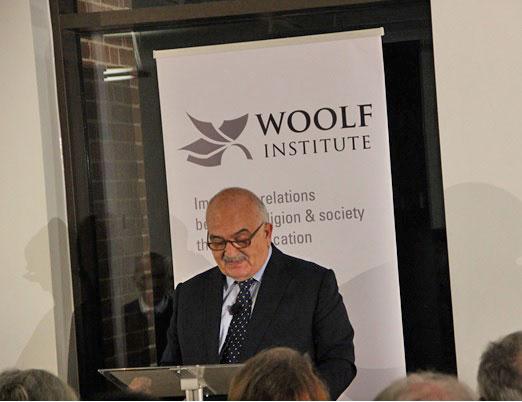
The Jordan Times
AMMAN — HRH Prince Hassan has delivered a lecture at the Woolf Institute in the United Kingdom proposing ways in which Palestine, Israel and Jordan could move from a culture of war to a culture of peace, according to a statement.
The lecture, titled “A positive future? The aftermath of conflict” was chaired by Lord Ian Blair and included responses from Lord Rowan Williams and Ed Kessler MBE, the founder director of the Woolf Institute, the statement from the Prince’s office said on Saturday.
Prince Hassan, who has over 40 years of experience working with dialogue, cooperation and peace relations within Jordan and the Levant, spoke about the importance of pursuing a vision of a world beyond discrimination, prejudice, intolerance or oppression of any kind, the statement said.
Moving on to the present, he mentioned that it was in the Jordanian interests to support Palestinian reconciliation as fundamental to building regional stability. “The engagement of Jordan in any hope of achieving the internationally recognised solution of a Palestinian state on Palestinian soil thus is now necessary, and equally urgent,” he stated.
Yet, he emphasised, there is a gulf between the “aftermath of conflict” and the achievement of a warm peace, as he said after the signing of the peace treaty between Jordan and Israel in 1994. “Unless this becomes a warm peace, a people’s peace, it will not last,” the prince said.
Post conflict resolution and reconciliation can not be achieved through a quick fix, but is rather a “long, slow, gruelling process of rehabilitation; of truth and reconciliation”, he noted, adding that people need to relearn how to live with each other.
“No single country in the Levant can solve its problems on its own. We have to work together to manage our regional commons,” the prince highlighted.
The prince stressed that in order to really change anything, “we have to transcend the noise of politics… to think creatively, to rediscover an inclusive narrative to manage post twentieth century politics and to believe in its possibility… But if economic and political changes are made without reference to human culture — and especially the fostering of human dignity and self-worth for all human beings, then they can not succeed in improving people’s lives and they lose credibility.”
He called on all faith leaders to exercise their responsibility “towards a renaissance of our collective humanity, for the human experience is what the faith communities have in common, whereas the divine is diversely understood”.
Edward Kessler MBE said that “Prince Hassan talked about something absolutely central to our future and to living peaceably together: trust.”
“At the Woolf Institute, with nearly 20 years’ experience in fostering better relations between religion and society through education, we have learnt that the biggest single contributor to poor relationships alongside a lack of knowledge is a lack of trust,” he argued.
For his part, Rowan Williams, master of Magdalene College noted that: “This is an exceptionally timely moment for a message like this stressing that real peace has to be built up from the longings of ordinary people and so must rest upon the long job of creating deeper trust.”
Latest News
-
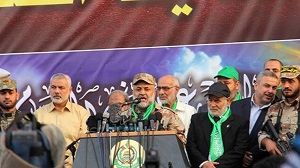 'Israel' targets Hamas commander in Gaza strike
'Israel' targets Hamas commander in Gaza strike
-
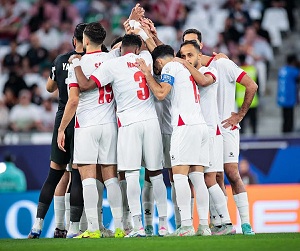 Jordan beat Iraq 1-0 to face Saudi Arabia in Arab Cup semi-finals
Jordan beat Iraq 1-0 to face Saudi Arabia in Arab Cup semi-finals
-
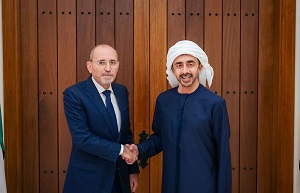 Safadi, UAE counterpart hold talks on bilateral ties, region
Safadi, UAE counterpart hold talks on bilateral ties, region
-
 Learn About the Caesar Act in Syria, Recently Repealed by the U.S. House of Representatives
Learn About the Caesar Act in Syria, Recently Repealed by the U.S. House of Representatives
-
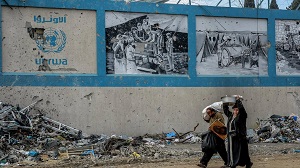 Trump administration weighs sanctions on UNRWA: Reuters
Trump administration weighs sanctions on UNRWA: Reuters